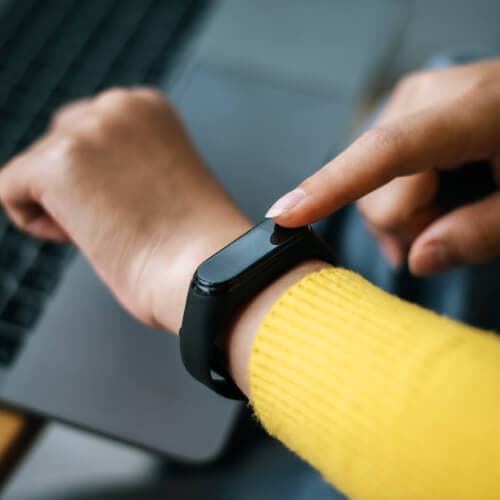From social media accounts to online shopping, we constantly share information on the internet—often without even realizing it. Whether you're uploading photos, commenting on posts, or filling out forms, this data forms your digital footprint. In fact, the average person in the US has more than 150 online accounts containing personal information. Even things as simple as clicking “I agree” on a cookie policy adds to the growing pool of data you’ve shared online.
What are the risks of oversharing online?
Sharing too much personal information can make you an easy target for identity theft, financial scams, and even social engineering attacks. Here are some of the most common risks of oversharing:
- Identity theft: Criminals use personal data to open fraudulent accounts or make unauthorized purchases.
- Phishing scams: Hackers trick users into revealing sensitive information, such as passwords or credit card numbers.
- Cyberstalking: Sharing location data can allow someone to track your movements.
- Financial fraud: Banking information or credit card details shared online can be exploited by fraudsters.
- Social engineering: Hackers manipulate individuals into divulging confidential information by using publicly available data.
5 types of revealing data to keep offline
Not all information belongs on the internet. These are some types of personal data you should keep private:
- Social Security number: One of the most sensitive pieces of personal data, critical for identity theft.
- Banking information: Hackers can drain your accounts if they get access to your financial details.
- Birthdate: A key piece of information used to verify your identity in security questions.
- Home address: Sharing your address can open the door to physical security threats and identity theft.
- Location check-ins: Real-time location sharing can put your safety at risk by revealing your current whereabouts.
How to tidy up your digital footprint
Taking control of your digital footprint is easier than you think. Here are some steps you can take today to clean up the data you’ve left behind:
- Delete old accounts: Close down accounts you no longer use to reduce the amount of data available about you.
- Update privacy settings: Review the privacy settings on social media and other platforms to control what information is publicly visible.
- Opt out of data broker sites: Data brokers collect and sell your personal information. Use online tools to request removal from these databases.
- Use strong passwords: Strong passwords are essential to protect against unauthorized access, cyberattacks, and data breaches.
- Enable 2FA: Enabling two-factor authentication (2FA) is crucial because it adds an extra layer of security to your accounts. Even if someone manages to obtain your password, they would still need a second form of verification, such as a code sent to your phone or a fingerprint scan, to gain access.
Monitor the web for threats to your identity
Even after cleaning up your digital footprint, it’s important to stay vigilant. LifeLock monitors hundreds of millions of data points every second and can alert you to threats you might not find on your own. By keeping a close eye on suspicious activity, you can catch potential threats before they cause damage.
Editor’s note: Our articles provide educational information. LifeLock offerings may not cover or protect against every type of crime, fraud, or threat we write about.
Start your protection,
enroll in minutes.
LifeLock is part of Gen – a global company with a family of trusted brands.
Copyright © 2026 Gen Digital Inc. All rights reserved. Gen trademarks or registered trademarks are property of Gen Digital Inc. or its affiliates. Firefox is a trademark of Mozilla Foundation. Android, Google Chrome, Google Play and the Google Play logo are trademarks of Google, LLC. Mac, iPhone, iPad, Apple and the Apple logo are trademarks of Apple Inc., registered in the U.S. and other countries. App Store is a service mark of Apple Inc. Alexa and all related logos are trademarks of Amazon.com, Inc. or its affiliates. Microsoft and the Window logo are trademarks of Microsoft Corporation in the U.S. and other countries. The Android robot is reproduced or modified from work created and shared by Google and used according to terms described in the Creative Commons 3.0 Attribution License. Other names may be trademarks of their respective owners.





